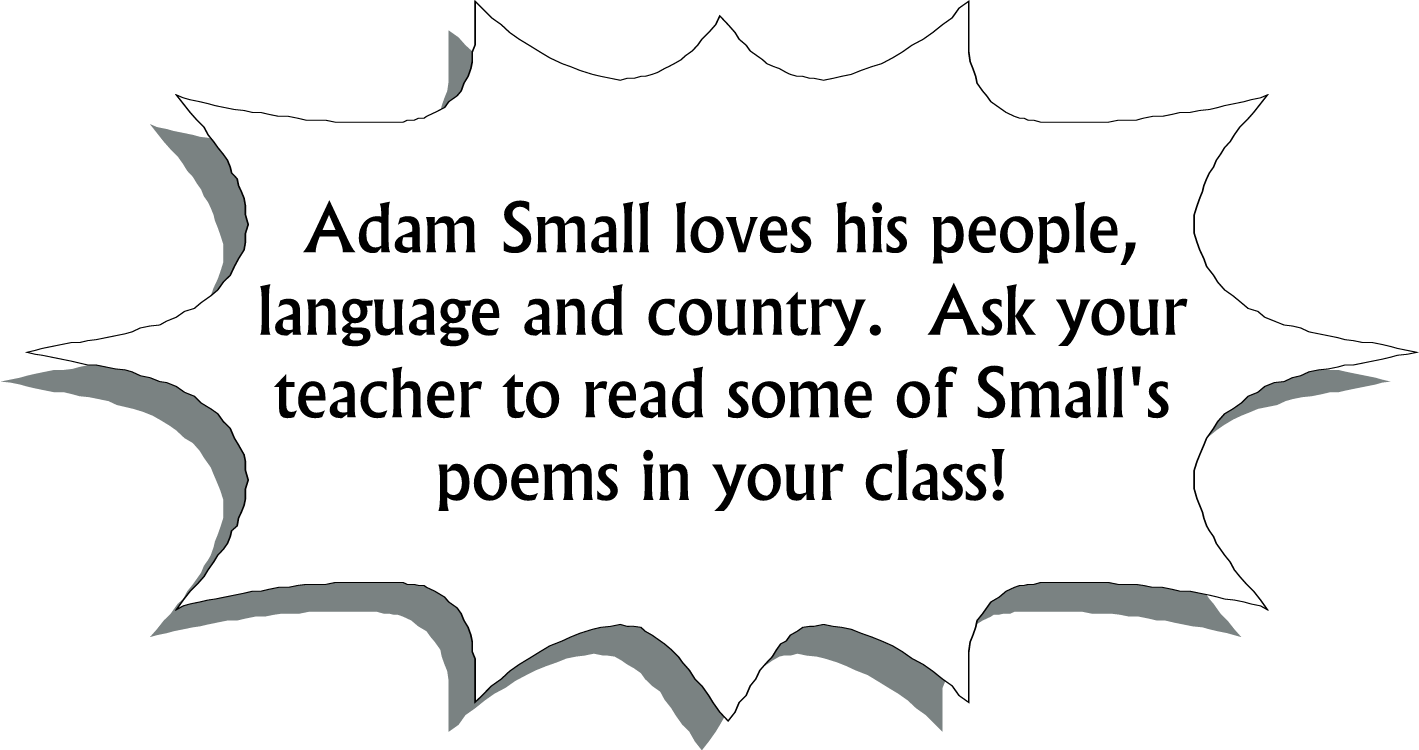| << Chapter < Page | Chapter >> Page > |
A glimpse at the life of Adam Small, one of South Africa’s best-known poets.
Fact: That which can be proved Opinion: Someone’s opinion
Thus I was born in Afrikaans at Wellington in the Cape, but was carried as a child in my mother's arms to Robertson on the other side of Bain's Kloof. There I stayed till I was about eight years old in the loneliness of Goree of those times; a small community just outside of Robertson. This is where we had moved to just after my birth. My father, a lonely teacher and always a leader, but never leader of the pack, became "sir" to all those beautiful and dusty heart-sore children and their parents... the farm labourers of the Goree area. Close to where the Rooiberg wines originate, where the Breede River flows through the Boland.
It was there, then, that I got to love this planet, more specifically our own South African earth, and even more specific the red-orange soil of Goree, for the first time also through the language my father taught me, Afrikaans. He was my first, and certainly the best teacher I had. Afrikaans, the language of that red-orange soil, the orange earth.

By Goree het my pa my ‘n lei en griffel in die hand gegeeen gesê skryfHy’t geglo dis werk hy was immers meester registerhouer van die skool en scriba van die kerk. Dit was nagmaaltyd by Goree (ons praat op Engels van communion).You see, it is going to be Eastertime and Mamma, who had adopted Pappa’s faith, Nederduitse Gereformeerde Sendingkerk . . . . . . well, she has to bake some bread.For the Easterservice . . . To thank God.Nagmaal . . . Communion.
Adam Small was born in Wellington on 21 September 1936. He spent his first nine years in Goree, on the outskirts of Robertson. Thereafter he went to Heathfield, Cape Town. His primary education was within the context of the reformed church, but his secondary schooling was Catholic. He became a student at the University of Cape Town in 1954 and obtained a B.A. degree in 1956 and an Honours degree in philosophy in 1957. He then studied abroad for a few months. He became a lecturer at the University of Fort Hare and later became a lecturer at the University of the Western Cape. After an interruption he is once again back at the latter university.
(From: Groot Verseboek )
a) Source 2 is Adam Small's account of his own life.
………………………………………………………………………………….
b) Source 1 should indicate precisely for what length of time Small lived at Goree.
…………………………………………………………………………………………
c) Source 1 is closer to the truth than source 2.
………………………………………………………………………………………….
d) Source 3 supplies the true facts.
………………………………………………………………………………………….
e) Source 1 indicates that Small's father was a headmaster.
………………………………………………………………………………………….
f) Source 3 proves that Adam was born in Wellington in 1936.
………………………………………………………………………………………….

The learner will be able to interpret aspects of history.
We know this when the learner:
3.2 Distinguish between fact and opinion:
(a) All the statements are opinions. (Learners could argue that certain statements could be opinions!)

Notification Switch
Would you like to follow the 'History grade 4' conversation and receive update notifications?